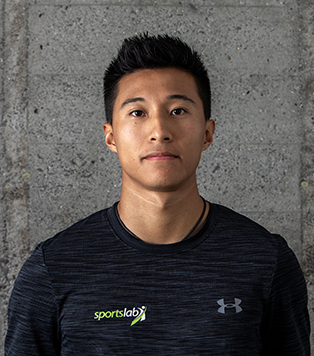SLEEP and Athletezzzzzz
Photo Credit: Cam Graves
Everyone loves a good sleep. You wake up fresh, energised, and ready to take on the day. A good sleep is vital for every human to survive and function. For an average person that sleeps around 8 hours per day, they would spend roughly 1/3 of their life sleeping!
How does sleep actually work?
Sleep occurs in different stages, non-rapid eye movement (NREM) and rapid eye movement (REM):
- Wake stage: Either eyes opened or closed
- Stage 1: NREM (N1); Length: 1-5 mins
- Stage 2: NREM (N2); Length: 10-60 mins
- Stage 3: Slow-wave sleep/ Deep sleep; Length: 20-40mins
- Stage 4: REM (where most dreams occur); Length: 10-60mins
On average, a person would go through 4-6 sleep cycles, each cycle lasts around 90mins. Stage 3 and 4 are shown to be critical for body recovery and growth, as well as maintaining cognitive function!
Sleep and Injury/ Recovery/ Performance
Athletes put their bodies under high physical and mental stress during training/ competition. Recovery is key to allow athletes to maintain this lifestyle without any setback. The fundamental of recovery is a well-balanced diet (if you want more details, get in touch with one of our nutritionists – Eliot and Gabrielle ) and adequate rest/ sleep. Recommendations for athletes are ranged between 7-9 hours sleep per day, elite athletes at minimum of 9 hours of sleep!
Sleep isn’t the only variable that contributes towards risk of injury. However, there are strong correlations between sleep deprivation and increased injury risk. In adolescent athletes, less than 5 hours sleep prior to a competition/ heavy training has over 70% likelihood of getting injured. With sleep deprivation, early onset of fatigue and physical exhaustion may also occur.
Sport performance (from endurance to anaerobic and sprint-based/ accuracy-based discipline) may decline due to sleep disruption, either partial (1-3 nights of poor sleep quality/ quantity) or complete (sleep deprivation/ loss). It also affects how our brain processes information and the formation of new memory or movement patterns, which is crucial when you’re trying to improve your technique or any complex movement and strategies for your sport!
Research has shown that our adaptive immune system is most active during sleep, which is critical to help fight off any viral or bacterial exposure to the body! Furthermore, deep sleep allows the production of hormones which are essential for body repair and growth.
Barriers
There are few common sleep problems that athletes would come across that may affect their sleep quality or quantity:
- A change in training load
- Training/ Competition schedule (i.e., early morning trainings for rowers / swimmers; night-time competition due to organisation)
- Jetlag while travelling overseas for competitions
- Academic pressure (student athletes)
However, most common sleep problem that athletes face is pre-competition insomnia. A study was done in the 2012 London Olympics, where sleep trackers were worn by the Team GB. The results showed the sleep efficiency was lower in athletes (81%) compared to non-athlete peers (89%). Similarly, another study identified a high prevalence of sleep disturbance before competition in a large group of German athletes, due to difficulty falling asleep and feeling anxious about the competition.
As mentioned previously, sleep is key to maximise recovery and performance, and it should be a TOP priority for athletes, alongside a high quality training routine and diet.
Here’s a few tips for sleep.
Sleep hygiene
General tips:
-aim for a regular sleep-wake routine
-use bed for sleep/intimacy only
-keep the bedroom cool, quiet, and dark (use earplugs/ eye-masks If needed)
-try relaxation techniques (i.e., meditation, breathing control, deep sleep brainwaves music)
-limit caffeine, alcohol, or sugar intake
-try late night high intensity training (it may increase stress hormone production)
-limit screen time before bed
-Avoid late-afternoon/ evening naps (after 3pm)
-If you can’t fall sleep for 20-30 mins, get up and do something else (avoid bright screens)
-maintain fluid intake throughout day, limit intake before bedtime
Specific:
- be cautious with sleep monitoring (don’t get caught up with data and stress about it too much)
-power nap before 3pm, keep it 30mins (ideally after lunch). Consuming 150-200mg of caffeine prior to mid-afternoon nap may boost alertness/concentration/mood and performance.
-sleep extension or “catch up” sleep: extend normal sleep hours by 1-2 hours at most for a couple of weeks. It may also work as “banking” sleep before an anticipated period of sleep loss, i.e., long travel, training camp.
Ed Leung is a talented Sports Lab Physiotherapist as well as a competitive triple jumper. Ed has an interest in utilising efficient biomechanics as well as strength and conditioning to minimise the risk of injury. He focuses on getting the basics right and building from there.


